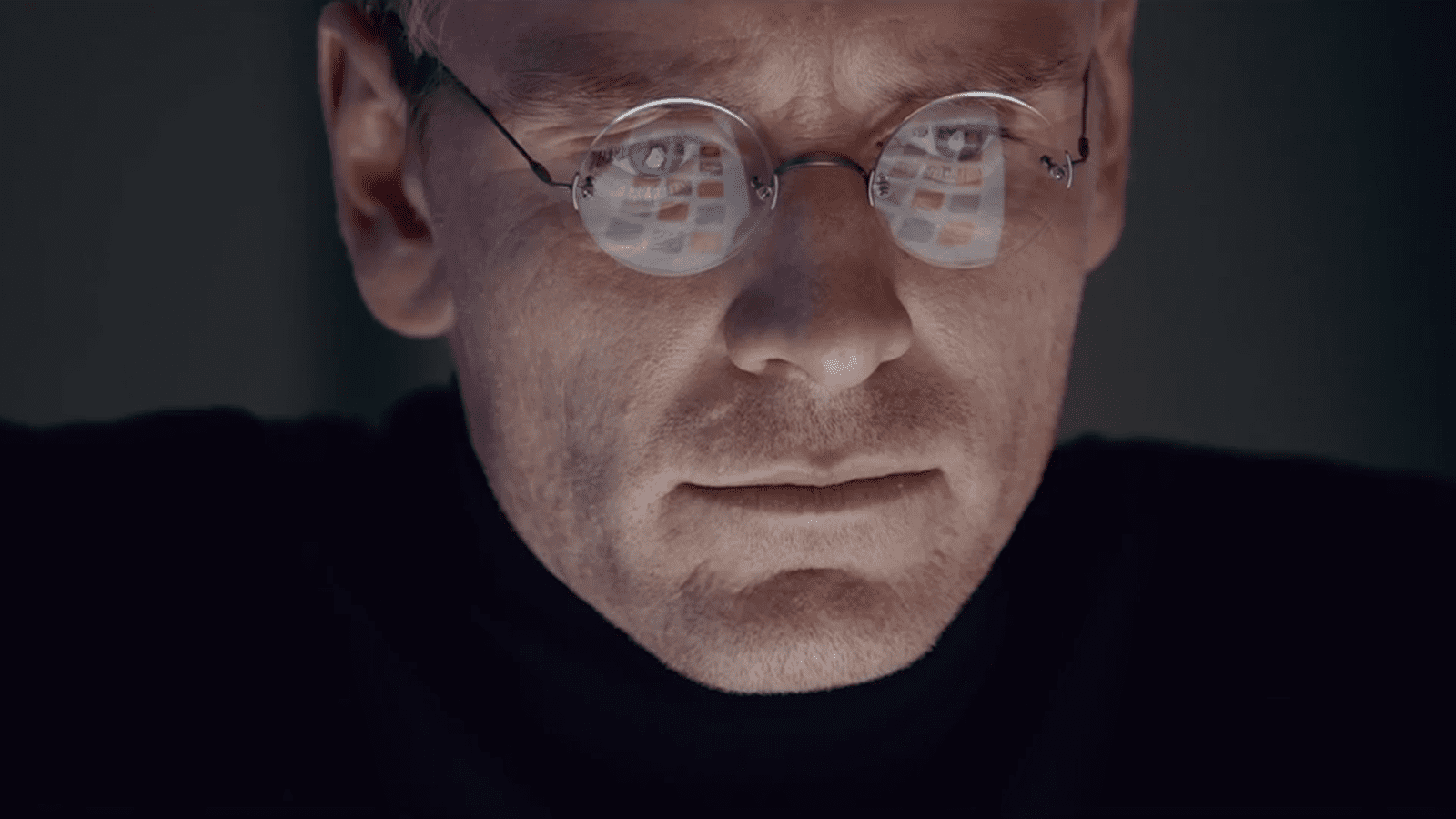The word ‘auteur’ is generally used to describe a director whose vision is clear enough to be recognizable. The great directors all fit into this category, but most screenwriters tend to play a more anonymous role. The exception is Aaron Sorkin, a screenwriter whose hyper-speed style and wall-to-wall dialogue is immediately recognizable in the best way possible. Five years ago, he won an Oscar for his unprecedented script on modern classic The Social Network. Although not working with Network’s director David Fincher, a similarly matched level of energy and bold protagonist dares his next project, Steve Jobs, to stand confidently alongside his other award winning work.
In the case of both films, Sorkin’s writing is met with a director whose style is equally vibrant. Job’s Danny Boyle may not have the fanboy following that Fincher has gathered, but from the film’s first moments there is little doubt that this is a “Danny Boyle” film. Boyle utilizes a vibrant array of images, quickly maneuvers between subjects, and manages to feel both macro and micro scale. Boyle has a few tricks up his sleeve as well that add a refreshing enough touch to make the film feel alive. The hybrid of writer from Social Network and director of Slumdog Millionaire and 127 Hours feels like a beautifully matched synthesis.
Because of the similarities to predecessor ‘The Social Network’, ‘Steve Jobs’ may not feel as enigmatic or fresh as the former film, but it’s entertainment and gripping narrative are enough to make it a must-see in its own right.
Perhaps the most daring element of this biography is, rather than telling the entire lifespan like a conventional biopic, the egomaniac genius of Jobs is distilled into three different chapters, each from different stages of his career. The film wastes no time trying to tell us information that we already know: it is entirely focused on the relationships Jobs had with his closest confidantes. Some fantastic decisions are made to distinguish each chapter, the most prominent being the decision to shoot using three different eras of cameras/film to match the progression of technology. Just one of many unique decisions that result in a more dynamic film.
Michael Fassbender, easily one of the greatest working actors we have today, tackles the character of Steve Jobs from the immediate get-go. He never feels disguised as the character, but instead embodies the classic approach where he is still very much himself within the spectrum of this incredible character. As is the case with nearly every element of the film, the ensemble of performers all show-up and deliver knockouts. Supporting cast members Kate Winslet, Seth Rogen, Michael Stulhbarg, and Jeff Daniels each get opportunities to deliver feisty discourse with Fassbender’s Jobs, and each is equally compelling. Since the triptych structure of the film allows for a very clear progression of character’s relationships, the arcs are more easily recognizable, but nonetheless well executed.
Because of the similarities to predecessor The Social Network, Steve Jobs may not feel as enigmatic or fresh as the former film, but it’s entertainment and gripping narrative are enough to make it a must-see in its own right. It is firing on all cylinders and captures the man behind so much of today’s world in a delectable manner. Because of the conscious decision to not cover the entire lifespan of Steve Jobs, but instead explore a series of dramatic relationships he had, the film is one that can stand beautifully beside Walter Isaacson’s book in that it only makes you want to learn more about the man instead of trying to encapsulate everything about him. Few influencers were as complex as Steve Jobs, and he is fortunate to have a film that does justice to the fascinatingly complex individual he is. For the numerous reasons listed above, Steve Jobs, a film equally attributed to Danny Boyle, Aaron Sorkin, and Michael Fassbender, is one of the must-see films of the year.
Steve Jobs opens Friday at the Landmark Theatre followed by a national rollout October 16th.
H. Nelson Tracey
Nelson is a film director and editor from Denver based in Los Angeles. In addition to writing for Cinemacy, he has worked on multiple high profile documentaries and curates the YouTube channel "Hint of Film." You can check out more of his work at his website, hnelsontracey.com

